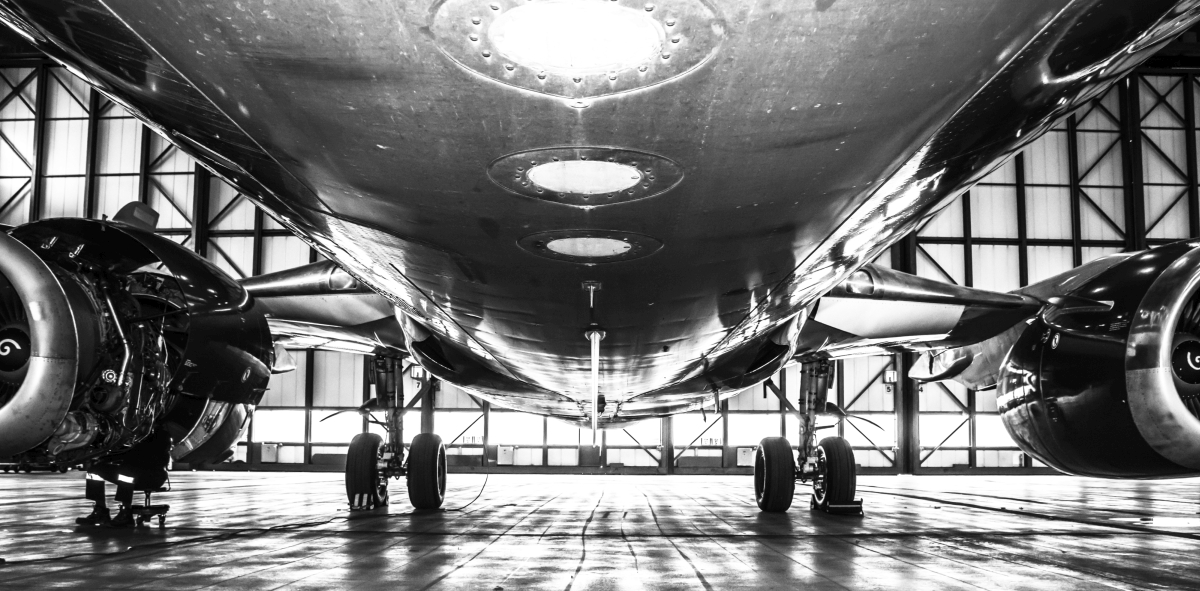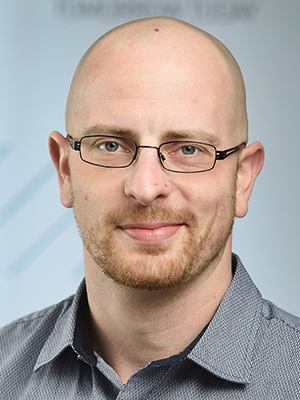Lightweight, multifunctional and intelligent airframe parts
The SUSTAINair project, led by AIT LKR, aims to make aircraft significantly more climate-friendly by developing lighter, intelligent and functionally integrated structural and propulsion components.
The European research project SUSTAINair (SUSTAINablility increase of lightweight, multifunctional and intelligent airframe and engine parts) was recently launched. Over the next few years, the LKR Leichmetallkompetenzzentrum Ranshofen will be conducting research in a high-level consortium on the development of lightweight, multifunctional and intelligent structural and propulsion components for aircraft. The focus is on the development of new metal and composite materials, their efficient use, innovative joining technologies, the integration of sensors in components and the recycling of materials.
Against the backdrop of climate change, air travel is increasingly coming under criticism. According to a recent international study by the International Energy Agency (IEA), aviation contributes around 2.5 per cent of global CO2 emissions to man-made climate change. Assuming that aviation remains the fastest growing transport sector despite the decline caused by the Corona crisis, there is an urgent need for action. Thus, aviation also has to make its active contribution to the goals anchored in the European Green Deal to achieve climate neutrality by 2050.
The aim of SUSTAINair is therefore to make the entire value chain more environmentally friendly in line with the European Union's Circular Economy Action Plan and to set new standards for aerospace production. Cross-sector synergies - for example between the automotive sector and aviation - are to be better utilised in this way. "Based on the circular economy approach, SUSTAINair is developing a basis for more cost-efficient, low-CO2-emission operations while combating the increase in resource consumption and waste. This is one of the reasons why SUSTAINair was initiated by the Future Sky research initiative of the Association of European Research Establishments in Aeronautics (EREA)," says LKR expert Rudolf Gradinger, who was one of the main developers of the SUSTAINair project idea.
European cooperation coordinated by the AIT Austrian Institute of Technology
SUSTAINair started in January 2021, has a duration of more than three years and a budget of five million euros. The high-level consortium consists of eleven European research and industry partners. The project is coordinated by the LKR Leichtmetallkompetenzzentrum Ranshofen, which is part of the Center for Transport Technologies of the AIT Austrian Institute of Technology.
Improving the buy-to-fly ratio
The circular economy concept takes the approach of making the most of the potential of existing resources by keeping the materials used in service for as long as possible, thus increasing their overall value over their life cycle. Aerospace demand for high quality materials is typically accompanied by large amounts of waste during the manufacturing process. This applies to both metal alloys and composite materials. In this context, one speaks of a disadvantageous buy-to-fly ratio; the material utilisation rate is often only 15 to 20 per cent.
However, the novel up-cycling and recycling methods being developed in SUSTAINair for both metal and polymer composites in aerospace can contribute to a significant reduction in waste generated during the manufacturing and end-of-life process. Recycling solutions are being developed for thermoset carbon and glass fibre materials as well as for high-performance thermoplastic composites. The project aims to develop near-net-shape components (components that are manufactured as close as possible to the final product in size, mass and shape) for the aerospace industry in order to reduce the buy-to-fly ratio to almost one. This is imperative if more material along the value chain is to be used than thrown away. This will be achieved by using recently developed nanoeutectic aluminium alloys at AIT LKR in combination with advanced die casting technologies. Such processing is considered fast and efficient in the automotive industry. The technology adapted and materials developed as part of SUSTAINair will also make the production of aerospace components faster, more efficient and cleaner.
Innovative components to reduce weight and increase efficiency
SUSTAINair also aims to use novel metal alloys and composite materials such as carbon fibre-reinforced polymers to reduce the mass of aircraft while increasing their aerodynamic efficiency. Even minor changes to the materials or the aircraft structure can make a decisive contribution to reducing fuel consumption and thus environmentally harmful emissions.
With this in mind, the project consortium will not only develop novel materials for a flexible wing, but also techniques for integrating sensors into the material of such aircraft components. Monitoring real-time data will, for example, allow operators to adapt maintenance cycles to the actual operating loads encountered, which will simultaneously increase the safety and reliability of aircraft structures and reduce maintenance costs.
A combination of metal and composite materials requires special technological solutions for joining and repair processes as well as for circular approaches in the end-of-life process. The concept developed within the framework of SUSTAINair is therefore designed in such a way that innovative techniques are possible along the entire value chain, which then give the material a longer life overall. Dismantling at the end of the life cycle and upcycling are also taken into account.
Project website: www.sustainair.eu






![[Translate to English:] EU-Flagge](/fileadmin/_processed_/6/e/csm_EU_flag_yellow_high_d3fade0c6a.jpg)